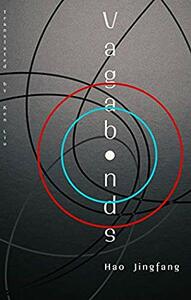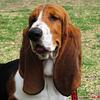Take a photo of a barcode or cover
adventurous
challenging
dark
emotional
hopeful
informative
reflective
sad
slow-paced
Plot or Character Driven:
A mix
Strong character development:
Yes
Loveable characters:
No
Diverse cast of characters:
Complicated
Flaws of characters a main focus:
Yes
challenging
inspiring
reflective
medium-paced
Plot or Character Driven:
Plot
Strong character development:
Yes
Loveable characters:
Yes
Diverse cast of characters:
N/A
I loved this absolutely loved it, it is the bar that all other books I read this year will be judged against. It's an especially high bar sorry other books in my reading plan you have a lot to live up to
Aggressively bored and it's not even funny. You keep trying to get into Luoying's mind but there's nothing in there really, and it's so frustrating in the most random of ways, like what do you mean you never thought about your position in life ever?
Rarely have I encountered a book that was so overrated. I came across it on a website that was recommending books by the likes of Naomi Novik and N.K. Jemisin, so I was quite excited to read it. And... Fell face first into disappointment. There are three main areas of criticism here: writing style, gender issues, unrealistic age expectations, and mothers. The first part will not have any spoilers, but the latter three will.
Criticism 1: Show, Don't Tell
When I was a wee child (about ninth grade) I had a fantastic English teacher who drilled into us the concept of showing rather than telling when writing fiction. As in, rather than say, "she was scared," say "she felt a chill run down her back." I'm not sure if Jingfang's writing style is really as clunky as it came across in this book, or if she is a victim of a bad translation, but there was virtually all telling in this story, and minimal showing. The closest I've come to this level of non-showing was Ken Follet books. Just about every page of the book had an over simplistic rendering of an emotion or thought style, rather than subtleness or grace.
Criticism 2: Gender, gender, gender
Where to even start? All the leaders and powerful people were male. Female characters were either very young, or wives/partners of male characters that actually did things of importance. While the nominal protagonist of the book is female, Luoying, she is essentially a non-entity. She is a stereotype of a waif child, easily upset, indecisive, and has to be taken care of by others. As a dancer, one would think she would develop physical strength and resilience - at least that's my experience with dancers in the real world, they're tough as nails - but Luoying. She's a delicate "wan" (Jingfang's word) little thing.
But turning away from the protagonist for a minute, there's the general gender relations between the characters. Probably the example that made me seethe the most was when a few 18-20 characters get together to figure out a technical challenge, the description is literally that the boys (again, Jingfang's description, I would prefer 'men') are all working on figuring out the technology, and the girls are basically sitting on the side chattering to each other. Seriously? A female author (with a strong background in science herself) writes this kind of gender essentialist nonsense? In the past few years?
I can imagine a way she could've made this work. She could've made a reference to a regression to traditional gender roles in the past, as a result of something or another. And then she would've saved the plot line. But as the book stands, it's kind of demoralizing.
Criticism 3: Age
At what age do most non-French speakers read Camus in the original? Jingfang seems to imply this is standard for her characters. And a whole range of other very deep philosophical works. Unless in her imagining learning and intelligence capacities are greatly enhanced in some way, the abilities and knowledge bases of the characters seem very unrealistic. Especially taking into account that they're in the future, and presumably there's that much more literature to bury Camus and his ilk in the past.
Additionally, her characters don't seem to live very long. 50 seems to be the new 80 in Jingfang's future. And again, if there was some sort of explanation, e.g. because of radiation people's life spans are shorter than they used to be, it could be swept away. But for some reason Jingfang thinks that people in the future will have less years to live, and will age faster as well.
Criticism 4: Dead mothers
There isn't a single living and functional mother in this story as far as I can tell. There is a grandmother at the start, but she doesn't actually act in the role of a grandmother, and has spent decades living on a ship away from her family. All the other characters from the protagonist to her love interest to the protagonist's grandfather have all grown up without mothers. Does Jingfang not know how to write a maternal character? If so, again, there are literary devices she could use - all kids are fostered or raised together like in the kibbutzim of Israel's past. But the killing off of all the mothers puts me in mind of the lesser qualities of the Brothers Grimm style of fairytales.
In all, I do not recommend.
Criticism 1: Show, Don't Tell
When I was a wee child (about ninth grade) I had a fantastic English teacher who drilled into us the concept of showing rather than telling when writing fiction. As in, rather than say, "she was scared," say "she felt a chill run down her back." I'm not sure if Jingfang's writing style is really as clunky as it came across in this book, or if she is a victim of a bad translation, but there was virtually all telling in this story, and minimal showing. The closest I've come to this level of non-showing was Ken Follet books. Just about every page of the book had an over simplistic rendering of an emotion or thought style, rather than subtleness or grace.
Criticism 2: Gender, gender, gender
Where to even start? All the leaders and powerful people were male. Female characters were either very young, or wives/partners of male characters that actually did things of importance. While the nominal protagonist of the book is female, Luoying, she is essentially a non-entity. She is a stereotype of a waif child, easily upset, indecisive, and has to be taken care of by others. As a dancer, one would think she would develop physical strength and resilience - at least that's my experience with dancers in the real world, they're tough as nails - but Luoying. She's a delicate "wan" (Jingfang's word) little thing.
But turning away from the protagonist for a minute, there's the general gender relations between the characters. Probably the example that made me seethe the most was when a few 18-20 characters get together to figure out a technical challenge, the description is literally that the boys (again, Jingfang's description, I would prefer 'men') are all working on figuring out the technology, and the girls are basically sitting on the side chattering to each other. Seriously? A female author (with a strong background in science herself) writes this kind of gender essentialist nonsense? In the past few years?
I can imagine a way she could've made this work. She could've made a reference to a regression to traditional gender roles in the past, as a result of something or another. And then she would've saved the plot line. But as the book stands, it's kind of demoralizing.
Criticism 3: Age
At what age do most non-French speakers read Camus in the original? Jingfang seems to imply this is standard for her characters. And a whole range of other very deep philosophical works. Unless in her imagining learning and intelligence capacities are greatly enhanced in some way, the abilities and knowledge bases of the characters seem very unrealistic. Especially taking into account that they're in the future, and presumably there's that much more literature to bury Camus and his ilk in the past.
Additionally, her characters don't seem to live very long. 50 seems to be the new 80 in Jingfang's future. And again, if there was some sort of explanation, e.g. because of radiation people's life spans are shorter than they used to be, it could be swept away. But for some reason Jingfang thinks that people in the future will have less years to live, and will age faster as well.
Criticism 4: Dead mothers
There isn't a single living and functional mother in this story as far as I can tell. There is a grandmother at the start, but she doesn't actually act in the role of a grandmother, and has spent decades living on a ship away from her family. All the other characters from the protagonist to her love interest to the protagonist's grandfather have all grown up without mothers. Does Jingfang not know how to write a maternal character? If so, again, there are literary devices she could use - all kids are fostered or raised together like in the kibbutzim of Israel's past. But the killing off of all the mothers puts me in mind of the lesser qualities of the Brothers Grimm style of fairytales.
In all, I do not recommend.
challenging
reflective
slow-paced
Plot or Character Driven:
A mix
Strong character development:
Yes
Loveable characters:
Complicated
Diverse cast of characters:
Yes
Flaws of characters a main focus:
Complicated
DNF-ing at 26%
Intensely character driven science fiction novels are not for me! I like the premise but a combination of the slow pacing and the lit fic-esque writing really had my brain on snooze while reading.
Intensely character driven science fiction novels are not for me! I like the premise but a combination of the slow pacing and the lit fic-esque writing really had my brain on snooze while reading.
medium-paced
Plot or Character Driven:
Character
Strong character development:
Yes
Loveable characters:
Yes
Diverse cast of characters:
Yes
Flaws of characters a main focus:
Complicated
3.5 rounded up. This is a story with tons of ideas to ponder, and I found it to be very interesting. It can feel very slow at times which might not work for everyone.






